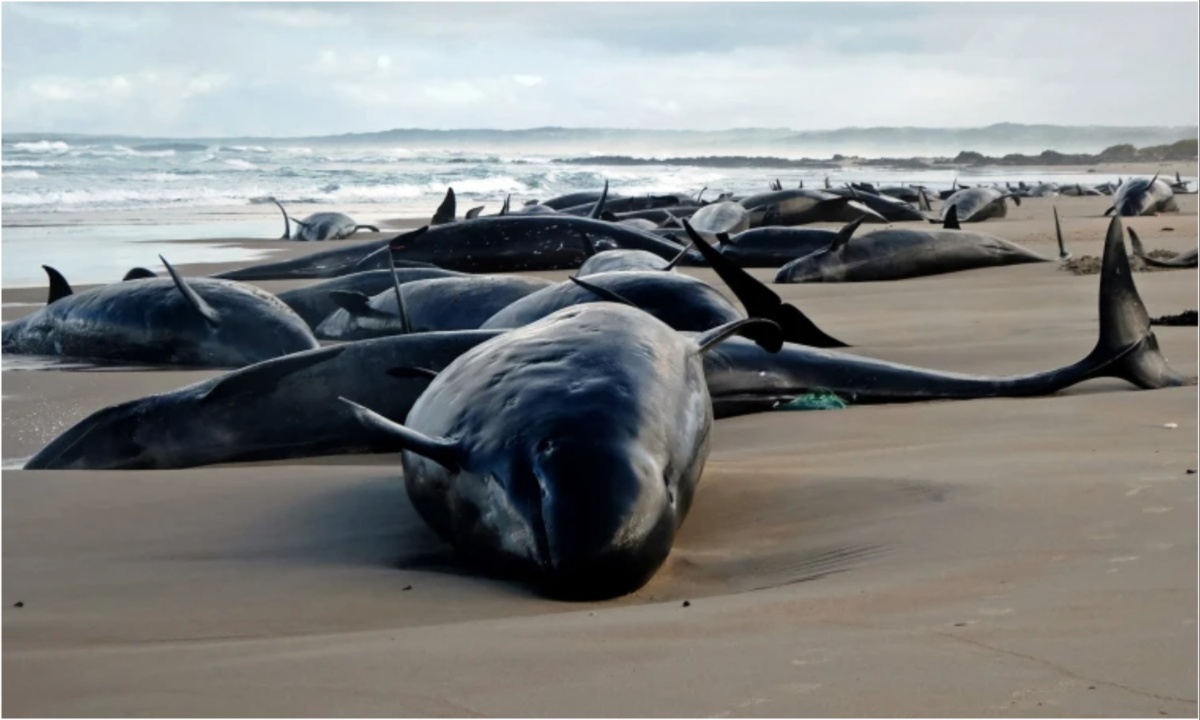Authorities in Australia are euthanizing around 90 false killer whales after a mass stranding near Arthur River in northwest Tasmania. The pod originally consisted of 157 whales, but most died soon after becoming beached. Experts at the site determined that the challenging conditions made rescue efforts impossible. This marks the first mass stranding of false killer whales in Tasmania in over 50 years, though the region frequently experiences whale strandings.
Harsh Terrain and Rough Seas Prevent Rescue Efforts for Stranded False Killer Whales
False killer whales, a large dolphin species, can grow up to six meters and weigh about 1.5 tonnes. The surviving whales had been stranded for 24 to 48 hours, suffering from extreme stress. The remote location of the stranding, 300 km from Launceston, has made it difficult to transport necessary rescue equipment. Marine biologists noted that the steep, rough terrain limited access, with only four-wheel drives able to reach the area.

Due to rough ocean conditions, efforts to return the whales to the sea were unsuccessful. Experts attempted to relocate and refloat two of the animals, but both kept returning to shore. Marine authorities stated that the breaking waves prevented the whales from swimming back into deeper waters. With the weather expected to remain harsh over the next few days, the possibility of a successful rescue diminished further.
Euthanasia and the Ongoing Mystery of Mass Whale Strandings in Tasmania
As all attempts to save the remaining whales failed, expert veterinarians made the difficult decision to euthanize them to prevent further suffering. The process, which involves shooting the animals, was set to begin on Wednesday and continue into Thursday. Authorities are also deciding how to handle the disposal of carcasses, with some suggesting that nature should be allowed to take its course due to the site’s cultural significance for Aboriginal communities.
Mass whale strandings are common in Tasmania, with over 80% of Australia’s incidents occurring in the state. In 2020, 470 pilot whales became stranded in Macquarie Harbour, and 350 died despite rescue efforts. Scientists have various theories about why strandings occur, including the possibility that whales follow prey too close to shore or that one whale mistakenly leads the pod onto land. Despite ongoing research, the exact causes remain unknown, making it a continuing challenge for marine conservationists.


